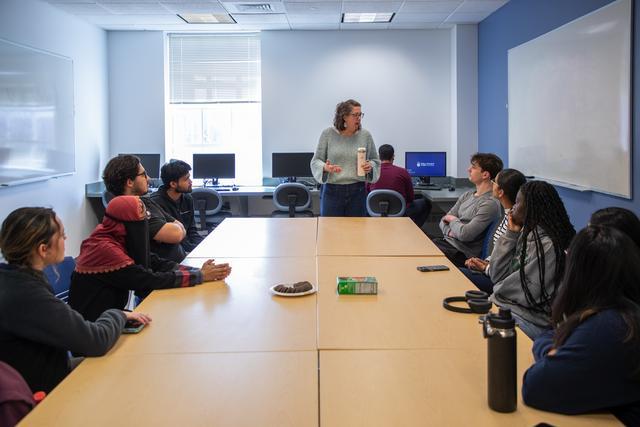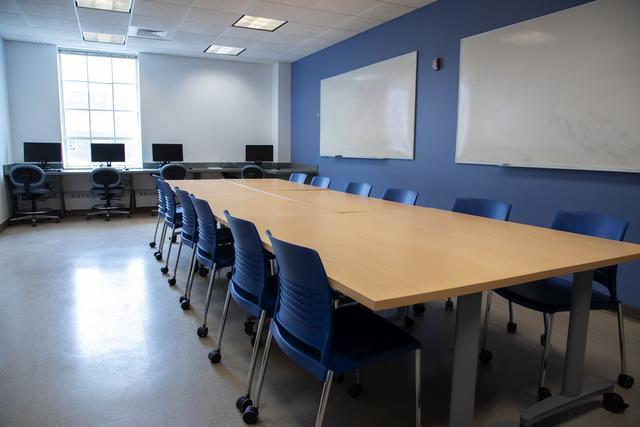
When IT data revealed that the computers in a second-floor lab in the Biology Building were rarely used, the biology department looked to students for inspiration on how to repurpose the space.
“Students want spaces to be together: more whiteboards, more places to collaborate,” Wendy Clement, department chair, says. “And we were also running out of spaces for our weekly lab meetings, which are a really big part of our department’s identity.”
The underutilized lab was reimagined and aptly named the Bio Collaboration Lounge. The space was outfitted with modular furniture, new whiteboards, and a large monitor equipped for Zoom. The new layout allows for flexible use, from formal meetings to casual studying, and is all thanks to donor support from alumni and friends of TCNJ.
Since its opening in the fall, the lounge has hosted everything from lab meetings to meet-and-greets with visiting speakers. It’s also available for students to use freely when not reserved — whether for individual or group work, lunch with a friend, or using one of the four remaining public computers, which feature biology-specific software.
“This is a great example of how many small gifts can add up,” Clement says, explaining that the funding for the renovation came from contributions made during TCNJ’s Day of Giving and through other annual appeals. “Someone may have given $20, someone else $500 — and together, those contributions made this possible.”
Now that the room has been in use for nearly a full academic year, biology faculty say it has transformed how they work with students.
“It’s important to me that we all sit around a table and are able to speak with each other as colleagues,” associate professor of biology KT Elliott says. “The flexible space and ability to sit around one big table help make us all comfortable chatting about science as a group.”
Biology professor Gary Dickinson says the space has elevated his work with students, too.
“Having an open, collaborative space is ideal,” he says. “It creates the kind of atmosphere where students feel valued, engaged, and excited to be part of meaningful research.”
“It wasn’t a huge or expensive project,” Clement adds, “but it’s made a big difference. It’s a small thing we were able to do quickly that’s already supporting community and collaboration in a really meaningful way.”
— Emily W. Dodd ’03

